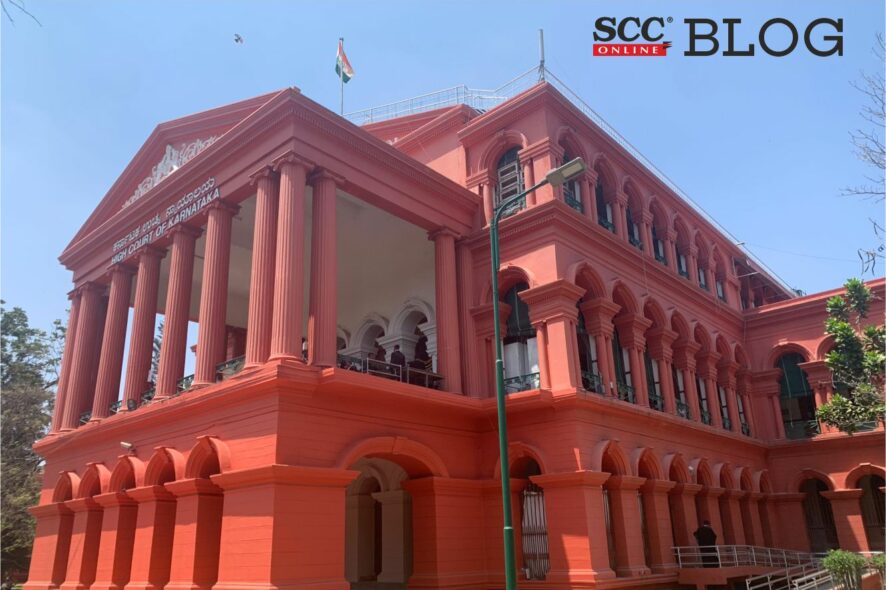Karnataka High Court: M. Nagaprasanna, J. allowed the petition in part and remarked the protagonists in the quadrangle to resolve the issue amongst them and not drag other persons into the proceedings.
The facts of the case are such that Petitioner 1 aged 76 years is the husband of the complainant/wife/respondent who is aged 69 years, entered into wedlock in 1968. Later in the year 1972-73, the 1st petitioner with the consent of the respondent married her sister Savitramma. The 1st petitioner again gets married in the year 1993 with the 2nd petitioner/ Varalakshmi with the permission and consent of the 1st and 2nd wives. It is also stated that the properties of the 1st petitioner were equally divided amongst all of them. Therefore, it is the contention that the 1st wife – Chandramma/respondent was aware of the marriage of the 1st petitioner with Savitramma, the second marriage and both Savitramma and the respondent was aware of the marriage of the 1st petitioner with the 2nd petitioner i.e., the third marriage. It is also stated that all of them lived together peacefully. Due to certain disputes, the respondent filed a private complaint invoking Section 200 of the Criminal Procedure Code, CrPC against the petitioners herein alleging offences punishable under Section 494 of the Penal Code, 1860 IPC for bigamy, Section 109 of the IPC for abatement and Section 34 of the IPC. The respondent also filed an application under Section 12 of the Domestic Violence Act, 2015.
Counsel for the petitioners Ravindranath K submitted that the allegation of polygamy against the 1st petitioner is unfounded as the complainant/respondent was very well aware of the relationships of the 1st petitioner as with her consent the 1st petitioner married one Smt. Savitramma, sister of the complainant and with the consent of both the sisters married the 2nd petitioner.
Counsel for the respondent SG Rajendra Reddy submitted that the complainant was not even aware of the marriage of the 1st petitioner with the 2nd petitioner. Suppressing the fact that the 1st petitioner is already married, he married the 2nd petitioner which would definitely amount to bigamy and there can be no delay in cases of bigamy is his emphatic submission.
The Court relied on State of Bihar v. Deokaran Nenshi, (1972) 2 SCC 890, and observed that a continuing offence is one which is susceptible to continuance and is distinguishable from the one
which is committed once and for all. The Court further relied on Jafar Abbas Rasool Mohammad Merchant v. State of Gujarat 2015 SCC Online Guj 5552 and observed that bigamy is a continuing offence.
The Court noted that the proceedings against the 1st and 2nd petitioners cannot be quashed as the offence is admitted by the 1st petitioner in the petition. It being with the consent of the 1st wife or with the consent of the 1st and 2nd wives for the third time would become immaterial for consideration of offence of bigamy. In the teeth of the admitted facts of the petitioner marrying thrice and its subsistence even as on day, the plea of delay in registration of the crime would pale into insignificance, as bigamy in the case at hand is a continuing offence. The 1st petitioner, the 2nd petitioner and the other two wives of the 1st petitioner have all married the 1st petitioner during the subsistence of each other’s marriage and being fully aware of the preceding marriage. Therefore, the proceedings will have to be continued against them.
The Court held criminal proceedings against petitioners 3, 4, 5 and 6 require to be obliterated and the charge sheet against petitioners1 and 2 is required to be sustained only for the offence under Section 494 of the IPC and not under Section 109 of IPC.[Anand v. Chandramma, Criminal Petition 9849 of 2021, decided on 25-05-2022]







